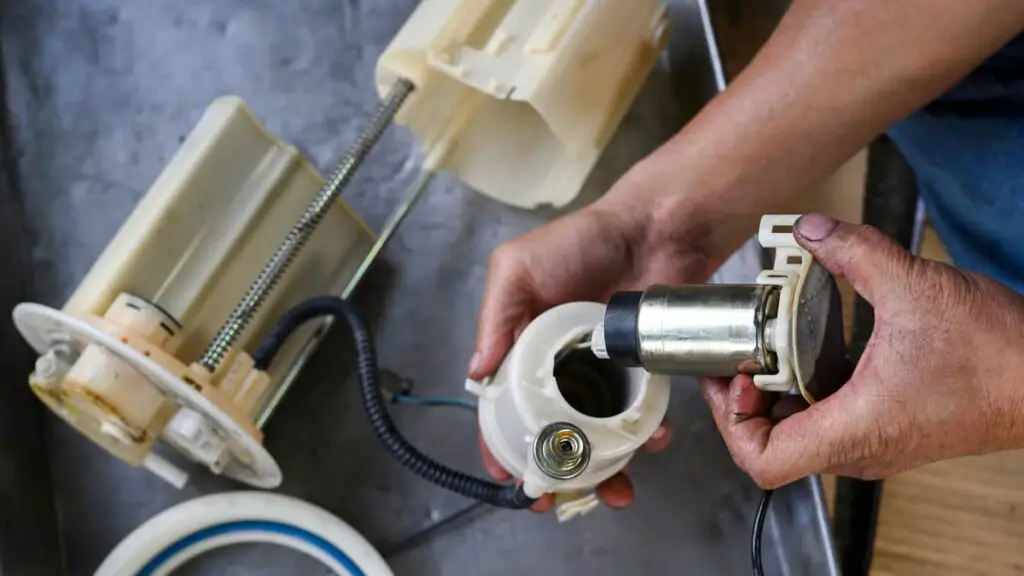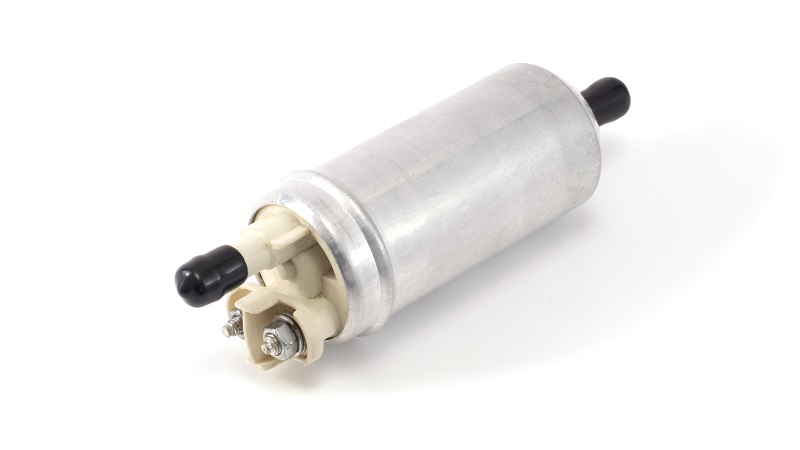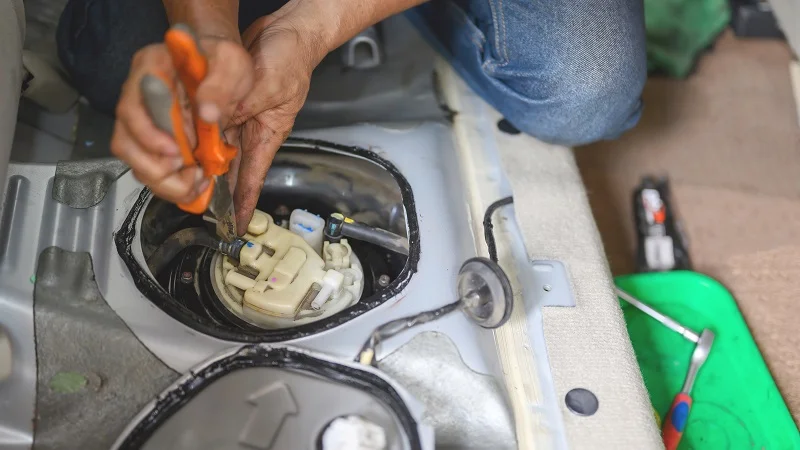A vehicle’s fuel pump is a crucial component that supplies gasoline from the fuel tank to the engine. Without a properly functioning fuel pump, a car will have performance issues or not run at all. So when a fuel pump starts to fail or weaken, it’s important to diagnose what cause fuel pump to weak or fails, and remedy the issue promptly. There are several potential reasons a fuel pump can lose effectiveness or stop operating.
Fuel Pump Wear and Tear Over Time

Like any mechanical component, fuel pumps experience natural wear and tear from use over time. The pump contains a motor, valves, filter, pressure regulator, and more, all of which have moving parts. After higher mileage or years of operation, the internal workings of a pump simply degrade, causing lower flow or pressure. This gradual decline in performance as a fuel pump ages is very common.
Symptoms of an aging pump show up as problems starting or stalling, reduced power and acceleration, check engine lights coming on, or the smell of gas due to leakage. Often, the pump will still operate, just not at peak levels. Once a fuel pump gets to this declining state, a replacement is required.
Sediment or Particle Buildup
The fuel going into your gas tank inevitably contains small amounts of sediment, such as dirt, rust particles from storage tanks and pipelines, or other debris. Over time, some of this sediment can make its way into the fuel pump. If enough particles accumulate, they can begin to clog components and reduce flow.
In addition, the fuel filter attached to the pump is designed to screen out contaminants. But if this filter becomes overly congested, it restricts flow to the pump. The compromised filtration can also allow more sediment to enter the pump. Replacing a clogged fuel filter is necessary to prevent pump damage.
Periodically adding fuel injector cleaner containing detergents will help remove deposits that impede pump operation. Proper fuel filter maintenance and using quality gas without excess sediment will also help minimize pump contamination.
Fuel Pump Power Supply Issues
The fuel pump relies on consistent voltage from the vehicle’s electrical system to run the motor. Any issues with the power supply can cause pump problems. What Causes Fuel Pump To Weak? Include:
- Weak fuel pump relay or relay contacts: The relay controls power from the electrical system to the pump. Poor relay contact or a damaged relay reduces voltage.
- Faulty fuse: Like the relay, a blown fuse interrupts power flow to the pump motor.
- Low battery charge: weak battery output due to a bad cell, loose connections, cold weather, or lack of maintenance will result in low supply voltage to the pump.
- Damaged power or ground circuits: breaks in the wiring to or from the pump disrupt electricity flow.
Diagnosing fuel pump electrical issues involves testing components like fuses, relays, circuits, and battery charge. Any identified problems must be corrected to restore proper pump operation.
Problems with the Fuel Tank or Sending Unit

Since the fuel pump is located inside the fuel tank, issues with tank or pump assembly components can compromise pump function. These include:
- Contaminated fuel: water, dirt, or other contaminants already in the fuel tank can enter the pump through the fuel intake strainer.
- Clogged fuel intake strainer: Outright clogging of the pump’s incoming fuel strainer will block fuel flow.
- Malfunctioning pressure regulator on pump assembly: The regulator controls pump output pressure. A defective regulator will cause pressure fluctuations and erratic fuel supply.
- Defective fuel level sending unit: This measures and reports the fuel level. Faulty readings can cause pump issues if the unit incorrectly indicates a full tank.
- Degraded fuel tank seals: Any leaks or openings allow air into the fuel supply, with symptoms like sputtering acceleration or hard starting.
Diagnosing fuel tank problems requires inspection of fuel quality, intake strainers, seals, and assembly components. Repairs often involve cleaning, strainer replacement, or resealing the tank.
Aftermarket Components Disrupting the Fuel System
Sometimes aftermarket fuel system parts like upgraded fuel injectors or a higher-flowing fuel filter lead to fuel pump problems. The stock pump may no longer maintain adequate pressure and volume. Modifications that increase fuel demand require reassessing fuel pump capacity to ensure it meets the added load.
Diagnosis is as simple as identifying any aftermarket components added and then sizing the fuel pump and lines to support the upgraded system.
Fuel Type Issues
Using improper types of fuel is another contributor to fuel pump problems. Gasoline engines running diesel or vice versa will damage pump parts. In addition, some use acetone additives as a homemade fuel system cleaner. But acetone can dissolve parts inside the pump and cause failure.
Fuel type analysis at a mechanic’s shop can identify any incorrect gasoline-to-diesel mix being used or detect acetone fuel contamination. The remedy is to flush the fuel system, including the tank, and only use proper fuel going forward.
Exposure to Debris or Water Due to Accident Damage
Any external damage to the fuel tank, such as from road debris or a collision, can allow debris or water to enter. This will quickly contaminate the pump through its fuel intake strainer. A damaged or leaking fuel tank requires immediate repair or replacement to resolve pump issues.
Diagnosing problems requires inspecting the fuel tank for damage or visible leaks. Repair options include patching leaks, draining and cleaning out the tank, or full tank replacement if damage is severe.
Cold Weather Icing and Ethanol Fuel Problems
In very cold climates, ice and condensation buildup are common fuel pump problems. Ice crystals that form can clog pump components that are meant for liquid fuel flow. Also, water condensation inside the tank can freeze around the pump pickup.
The main cause is using fuel with ethanol during winter. Ethanol absorbs water and allows phase separation, where water and ethanol split into separate layers in cold temperatures. The below freezing water settles around the pump intake.
Using an engine block heater and fuel treatments with anti-icing additives can help. Switching to ethanol-free fuels for winter is ideal. The diagnosis is based on foul weather issues and testing for phase separation of ethanol fuel.
Fuel Pump Fails Prematurely
Sometimes fuel pumps fail well before their expected service lifetime. Various manufacturing defects can be to blame:
- Substandard materials: pump parts made from low-grade metal, plastic, or magnets have higher failure rates.
- Poor casting and machining: defects like porosity, cracks, or dimensional issues in the cast metal housing reduce durability.
- Faulty internal seals – Leaking seals allow fuel or air leakage into the pump motor, causing erratic operation.
- Design flaws – Inadequate strainers, filter capacity or pressure control lead to premature failure.
When a new fuel pump fails, the best remedy is replacement under warranty if still valid. Quality pumps from reputable brands typically last well over 50,000 miles.
Detecting and Diagnosing Fuel Pump Problems
The specific symptoms that indicate fuel pump problems can vary, depending on the extent of wear or damage. Some of the most common signs of a failing or weak fuel pump are:
- Difficult starting or long cranking before engine starts
- Engine stalling or misfiring during acceleration
- Reduced power and sluggish acceleration
- Check that the engine light is on due to lean fuel conditions
- Abnormal fuel pump noise from engine compartment
- Odor of gasoline around car from pump leaks
- The fuel gauge stays low, indicating pump doesn’t fill tank properly
Diagnosing issues accurately requires testing pump operation using a fuel pressure gauge. Low pressure, erratic pulsing, or slow recovery after engine shutoff indicate a bad fuel pump. Electronic testing of pump power and ground circuits can identify electrical faults.
Inspection of the pump, fuel tank, and filters can reveal visible clogging, contamination, or damage. A weak pump will often have a failing brush card assembly that is tested using an ohmmeter. This comprehensive testing pinpoints the root issue, whether it is a worn pump, a power supply problem, or fuel tank contamination.
Solutions for Restoring Fuel Pump Function

Once the underlying problem is identified through testing, the solution will typically involve one of these repairs:
- Replace a worn fuel pump. For pumps that show a general decline in performance with age and mileage, this is the most common solution for weak fuel pumps.
- Clean or replace clogged fuel filters and intake strainers. This clears any collected sediment, causing restricted flow.
- Draining and cleaning contaminated fuel tanks removes built-up sediment, clears water, and fixes phase separation issues.
- Fix fuel pump wiring and electrical issues Restore a consistent voltage supply by repairing circuits, connections, relays, and fuses.
- Repair or replace a damaged fuel tank. Correct any external damage that allows debris inside the tank.
- Adjust pressure regulator: for regulator defects causing erratic pressures
- Switch fuel types: drain and flush the system to remedy contamination from the wrong fuel being used.
Wrapping Up
A proper diagnosis, paired with a repair that addresses the root cause, is key to restoring strong and reliable fuel pump operation. Well-maintained pumps can achieve a long service life of 100,000 miles or more before replacement becomes necessary. But neglecting fuel pump problems will lead to escalating performance issues or even complete drivability failure.
By keeping an eye out for telltale symptoms and making fuel pump checks part of routine maintenance, you can avoid being left stranded with pump problems. Catch issues early and perform recommended repairs before pump failure leaves you on the side of the road. With attentive fuel system care, your faithful fuel pump will keep your car running smoothly for the long haul.

